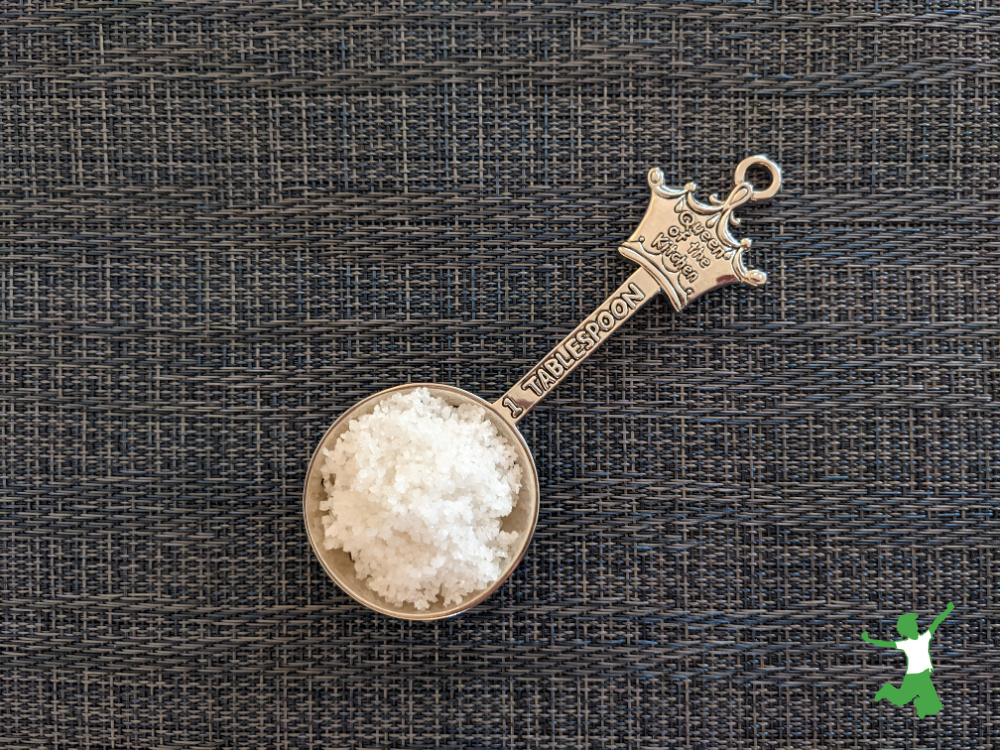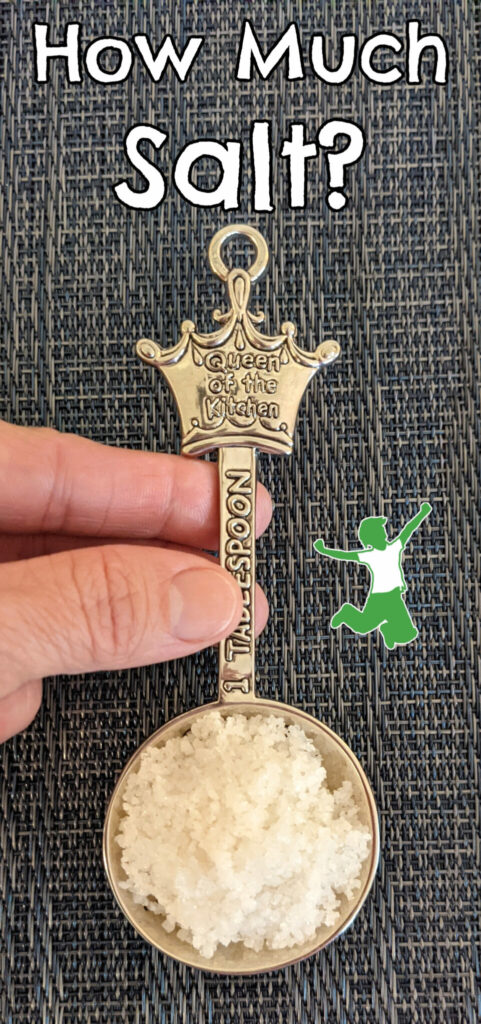The pseudoscience behind a low salt diet and why reducing sodium intake increases the risk of obesity, diabetes and a cardiovascular event.

“Mankind can live without gold … but not without Salt.” – Cassiodorus, Roman statesman, circa 500 AD
The FDA continues to recommend low salt diets, gradually moving toward the goal of 23o0 mg per day. This is despite strong evidence that a low sodium diet is not health-promoting and actually risks higher rates of disease and death.
Perhaps the FDA is attempting to usher in a modern manifestation of the ancient salt routes.
In the Dark and Medieval Ages, only the rich had enough salt. The peasants were unable to procure enough, and their health suffered greatly as a result.
Of course, the push to control the sodium content of food is cloaked in the argument that low salt diets are beneficial to health.
This is simply not so!
Low salt diets are flat-out harmful and there is plenty of research to back this up.
In fact, it is smart to use homemade sole water as an ionic supplement to ensure you are getting enough!
Research on Low Salt Diet Dangers
A compelling and large study that dismantles the sacred cow that salt is bad for you appeared in the Journal of the American Medical Association. (1)
3,681 healthy European men and women aged 60 or younger were followed for about 8 years.
Those that consumed higher than average amounts of sodium did not experience an increased risk for hypertension, stroke, or heart attack.
Dr. Jan Staessen MD, senior author of the study at the University of Leuven in Belgium stated that the study’s findings:
… do not support the current recommendations of a generalized and indiscriminate reduction of sodium intake at the population level.
Low Sodium Increases Disease and Death
It appears that it is much better to have a higher than average sodium intake than a lower one.
As published by the peer-reviewed Journal of the American Medical Association, even small decreases in sodium content in the diet increase the risk for a cardiovascular event and death.
The sodium levels adhered to in the JAMA study were based on USDA dietary guidelines.
Hence, people who follow low salt recommendations are at increased risk for a significant and possibly deadly health event!
The authors of the study wrote:
Taken together, our current findings refute the estimates of computer models of lives saved and healthcare costs reduced with lower salt intake. They also do not support the current recommendations of a generalized and indiscriminate reduction in salt intake at the population level. (2)
Dangers for Diabetics
Another study from Harvard University showed that participants developed insulin resistance in only 7 days when on a salt-restricted diet. (3)
Insulin resistance is an alarming condition that indicates a strong likelihood that Type 2 Diabetes will develop.
Similarly, Australian studies have shown that those individuals with Type 1 or Type 2 Diabetes die in larger numbers when following a salt-restricted diet.
From a common-sense point of view, a review of these studies indicates that low salt intake is a particularly risky path for those with blood sugar control issues.
Given that 80% or so of adults over the age of 25 are already overweight or obese in the United States, FDA restrictions on salt content in food could put the majority of the population at considerable risk for early death.
Salt Replacement Risks
The very clear danger of any FDA-mandated reduction in the salt content of foods is that manufacturers will increase the amount of MSG to compensate for the loss of flavor.
This has been Big Food’s typical response to government calls for reduced sodium since the 1970s.
It appears, however, that food manufacturers have another favorite food additive that they use to stealthily replace sodium.
Senomyx Dirty Little Secret
The salt substitute of choice for Big Food is called Senomyx. It is so potent and requires such tiny amounts that it doesn’t even need FDA approval.
According to the Weston A. Price Foundation:
The Senomyx salt substitute is clearly a chemical product that works in the body as a neurological agent, causing an individual to perceive a salty taste. It would seem to be nothing more or less than a neurotrophic drug.
Because the maker of the Senomyx product calls it a food, their salt substitute does not require the extensive testing that would be required by the FDA if it were called a pharmaceutical.
To our knowledge, there has been no testing of the Senomyx salt substitute for safety, and it is so potent that the amount needed in food is below the amount requiring FDA approval. (4)
Most consumers are unaware that Senomyx widely uses aborted fetal cells in their flavor manufacturing. (5)
Besides this undisclosed ethical issue, the use of Senomyx, which tastes salty but does not satisfy the body’s biological need for salt, threatens consumers with even more weight issues!
This is because appetite does not sufficiently abate until enough salt is consumed.
Hungry all the time? Perhaps you are not getting enough salt!
In short, people continue to eat and eat until their bodies get sufficient salt regardless of what level the FDA might ordain. (6)
Which Salt is Best?
Obviously, people would do well to avoid refined or iodized salt for the same reasons as any other processed food.
Unrefined sea salt containing dozens of important trace minerals is the best type to source as part of a healthy diet.
Due to microplastic pollution found in sea salt in recent years, it is a good idea to make sure yours is tested for purity.
My preferred sea salt brand is this brand from the Sea of Cortez which is tested to be free of contaminants and microplastics. Use coupon HealthyHome10 for 10% off if you’d like to try it!
Sea of Cortez sea salt (“Baja Gold”) also contains the highest amount of trace minerals of any sea salt in the world (no other sea salt is even close).
If you’ve been afraid of too much salt in the past, it’s time to stop worrying. Your body NEEDS salt!
Objective studies show that low salt diets do more harm than good. The view that “salt is bad” is substantiated only by junk science.

(1-2) Fatal and nonfatal outcomes, incidence of hypertension, and blood pressure changes in relation to urinary sodium excretion
(3) Low-salt diet increases insulin resistance in healthy subjects
(4) The Salt of The Earth
(5) Hidden Food Ingredients
(6) Caustic Commentary Summer 2022








I have hypothyroidism and take synthroid. What effect will switching from iodized table salt to a quality sea salt have on thyroid function? Should I take iodine supplementally? No use asking my doctor. She just tells me to take my pill and not worry about what I eat. To those who will suggest I see a different doctor, I have. None seem to care. Nutritionists I’ve consulted all seem to have different opinions.
I am also on synthroid and would like to know about this.
My boyfriend’s mum went on a low salt diet and ended up in hospital because of it. Now the doctors keep telling her to eat more salt as she’s often low in blood tests.
you’ve a great blog here! would you like to make some invite posts on my blog?
Ok, Sarah. I agree with the short video. But I decided to click on another to see what he’s about. and in one of the vids (9:30 long) he starts out by showing how bureaucrats are wrong about food science by saying that they banned milk pasteurization in the early 1900s EVEN THOUGH THOUSANDS OF CHILDREN DIED FROM INFECTED MILK!!! He’s alluding to it again later into the vid by saying how can you believe them about low salt diets when they were so wrong to prevent/delay milk pasteurization for so long (talking about NY here)!
Hard to believe him on the salt part when he’s throwing out the baby with the bath water on the tainted milk issue! (not sure if that’s the right metaphor, but I hope you get the point!) He even critized some country for delaying pasteurization till the 80’s (Scotland, maybe?) . We know the story with the milk, and how all of our food is now overprocessed and neutralized and devoid of nutrition because of paving the way with pasteurization. Milk pasteurization was used instead of cleaning up the cow feeding and proper nutrition and hygeine. And it does who how government intervention tends to mess things up, but he’s using the opposite argument about it–that the government was wrong to wait so long when they “knew” about the science of it much earlier!
Ugh! Sort of like listening to Mark McAfrey talk about how cows evolved into grass eaters…
Sorry, but I’m very disappointed.
And I don’t want to detract from the argument that salt shouldn’t be regulated. it shouldn’t, for goodness sake. What should be regulated is all the garbage food manufacterers are able to put in in place of the real stuff, and then call it food, or good, or good for you, or whatever.
So all you out there, just because this guy comes up with this argument, it doesn’t mean we can let the FDA tell us what to eat and not eat!
Pass the salt, please. http://t.co/X6vw359w
So I have been recently diagnosed with high blood pressure and I’ve been told to decrease my salt intake and start a low sodium diet, and I’m also put on a pill that is supposed to flush out excess salt in my body. With me having high blood pressure is it still dangerous to be on a low salt diet?
Sarah – Loren Cordain, a professor at Colorado State University, who has written books about the merits of paleo diet said there is a link between consuming salt and osteoporosis. I like to add sea salt to my food but now I’m not sure if this is a good idea now. Have you heard anything about this? Thank you.